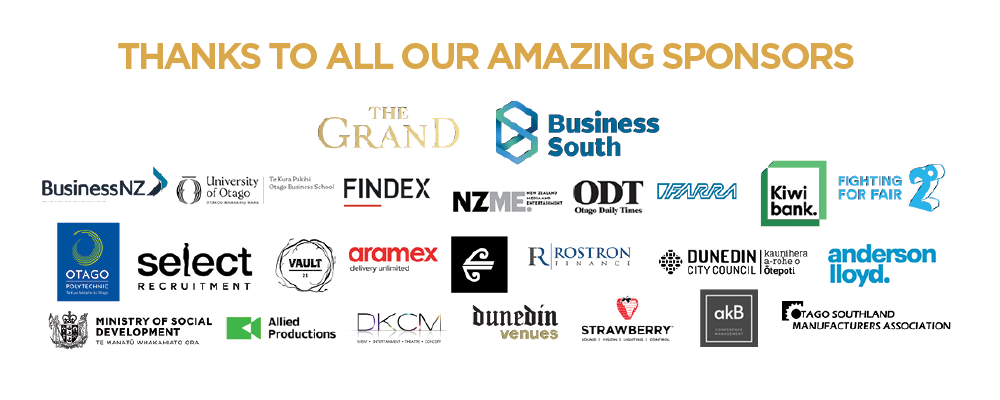Sponsored by Otago Polytechnic
Hayz At The Anchorage

Zero-waste eatery earns multiple awards
Once considered a remote outpost, Bluff is now a destination for foodies from around the world.
Hayz At The Anchor age has boosted the southern town’s appeal with its passionately prepared indigenous and sustainable kai.
‘‘We collaborate with food rescue organisations, aquaculture farms, and community groups to reduce waste, protect natural resources, and build a more resilient food system,’’ owner and operator Haylee-Chānel Simeon says.
‘‘Our restaurant is a zero-waste kitchen: vegetable offcuts, fish frames, and titi hearts are transformed into stock, signature pâtés, and seasonal dishes. All remaining food scraps are fed to local livestock, helping us feed whānau beyond the plate.’’
The enterprise has won numerous business, food, and customer service awards recently.
‘‘It’s been a massive and humbling few weeks for our small business,’’ Haylee-Chānel says.
Features in international magazines have helped to generate growth — the kitchen has trebled in size and staff numbers have likewise increased.
‘‘We’re currently developing collaborative projects with more tourism operators to expand our brand offerings and position Bluff as a premium cultural and culinary destination.
‘‘Sustainability will remain at the core of everything we do.’’
Sandymount Distillery

Award-winning spirits imbued with essence of Otago
Sustainability is a crucial ingredient at Sandymount Distillery.
Located in Sandymount Rd on the Otago Peninsula, the distillery makes craft gins, whisky, and brandy for the New Zealand market. Having started in 2020, it now supplies more than 300 stockists nationwide.
Sandymount has won multiple domestic and international accolades, including Best Gin at the New Zealand Spirits Awards three years running.
‘‘We are New Zealand's first and only certified carbon zero distillery,’’ owner Richard Wilson says.
‘‘Utilising our surroundings, we have created a brand which represents both the flora and community around us, as well as producing a product which is a favourite for people across the country.
‘‘We connect our customers with our sustain ability journey.’’
The business has doubled in size each year.
In the last year ‘‘significant supply contracts’’ have elevated it to one of the most prominent spirits brands in New Zealand, Richard says.
‘‘In the last month we have grown by 75% in production volumes, as well as 35% in distribution by region.’’
Staff numbers have also doubled.
Sandymount has a 5ha planting programme, giving back with native plantings funded by profits from product sales.
Mizen Automation

Components repaired, reused and recycled — not scrapped
Mizen Automation is redefining what’s possible, giving industrial components a second life instead of sending them to the landfill.
Dunedin-based Mizen supplies clients throughout New Zealand, Australia, and beyond with industrial automation and control hardware, from programmable logic controllers (PLCs) and human–machine interfaces (HMIs) to drives, motors, and sensors.
Managing director Mark Hurley says Mizen serves a diverse range of industries, including food and beverage, power generation, medical and pharmaceutical, automotive, oil and gas, mining, pulp and paper, and general manufacturing.
By specialising in obsolete, end-of-life, and refurbished automation components, Mizen helps clients reduce waste, extend the life of valuable assets, and avoid costly, unnecessary upgrades.
At the heart of this approach is Mizen’s buy-back programme, recovering surplus hardware so components can be reused instead of discarded.
Mizen also offers competitive pricing on current line products from thousands of global brands and offers customers a repair service.
‘‘Through efficient global sourcing and fast, reliable shipping, Mizen ensures that adopting sustainable practices never means sacrificing uptime,’’ Mark says.
‘‘Unlike standard suppliers, Mizen offers both current line and discontinued components from all major brands, each backed with a warranty.’’
Clip Joint Hairdressing

Salon thrives on sustainability
A Dunedin hairdressing business goes to great lengths in its commitment to sustainability.
Clip Joint Hairdressing co-owners and co-operators Loren Westhead and Melissa Gilbert bought the business where they had been working as senior stylists in 2010.
‘‘We're recognised nationwide for being the first in New Zealand to lead a sustainably focused salon and we're pleased to share our sustainable practices with staff, clients and the wider community,’’ Loren says.
The salon has won national sustainability and ‘‘Eco Salon’’ awards multiple times.
It was not always easy to source appropriate products or to retain sustainability practices throughout the Covid period, but the co-owners did both.
Initiatives include using cruelty-free, vegan-friendly products made with natural, ethically sourced ingredients; recycled and recyclable packaging; foil made from 97% recycled materials; reusable gloves and colour aids for staff; offsetting carbon emissions since 2018; recycling colour tubes and aluminium at Sims in Dunedin; composting all hair offcuts locally; using Ecoheads tapware at the basins; and conserving water and power.
‘‘We're always researching new ways the salon can continue to improve and evolve to make positive changes,’’ Loren says.
Kiwi Park

Conservation at heart of tourism business
‘‘Kiwi Park is redefining what sustainability looks like in tourism,’’ operations manager Anthony Wilkins says.
The Queenstown site is home to more than 20 of New Zealand’s endangered bird and reptile species, including kiwi, kea, whio, kākāriki, and tuatara.
The wildlife sanctuary is led by Richard Wilson — the third generation of the family that founded it nearly 40 years ago.
More than 100,000 visitors a year experience nocturnal kiwi encounters, live wildlife conservation shows, and immersive habitats.
Tourism earnings fund Kiwi Park’s conservation work.
Its breed-for-release programmes for kiwi, whio, pāteke, and many other species is growing, and 1000 native trees are being planted each year until 2032. That will amount to 9000 trees and $135,000 invested into biodiversity recovery and carbon capture.
Solar energy, insulation upgrades, and using storm-felled timber for construction projects also contribute to carbon and waste reduction.
Key systems have been digitised, paper use reduced, energy efficiency upgraded, and visitor waste separation implemented.
Staff have been trained in conservation storytelling and climate literacy.
The evening light and sound experience launched with Luma this year proves purpose-driven, low-impact tourism can inspire, engage, and grow, Anthony says.















